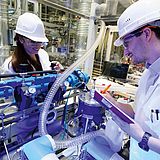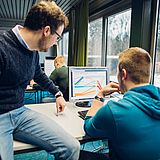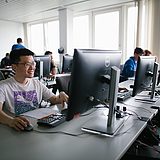Bachelor's
A bachelor’s is the first degree a person can acquire at a university, and within a multi-cycle degree structure, it is the first level which qualifies graduates for an occupation.
Even if you actually want a master’s degree, you need to complete a bachelor’s degree program first. To start a bachelor’s, you do not need to have graduated from any previous course of university study, which is why bachelor’s degree programs are also known as undergraduate programs. You do, however, need to possess a university entrance qualification (e.g. an Abitur or equivalent high-school diploma). The standard duration of most bachelor’s programs at TU Clausthal is six semesters.
Each bachelor’s program at TU Clausthal has at least one master’s program that counts as consecutive to it, i.e. as following on directly from that bachelor’s program. Once you have your bachelor’s degree, you do not need to go through a separate application and selection procedure to be allowed to start a consecutive master’s program.
The study programs marked with * are also part-time studyable.
After successfully completing a Bachelor's degree, you can continue your studies with one of the Master's programs at TU Clausthal.
![[Translate to English:] [Translate to English:]](/fileadmin/_processed_/9/1/csm_Beachvolleyball_1_1a8913aa18.jpg)
![[Translate to English:] [Translate to English:]](/fileadmin/_processed_/2/3/csm_Alternative_BWL_ac044c4f8f.jpg)
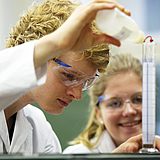
![[Translate to English:] [Translate to English:]](/fileadmin/_processed_/b/6/csm_Bachelor-DigitalManagement_ac3f5639c4.jpg)
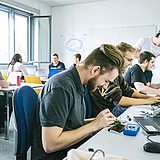

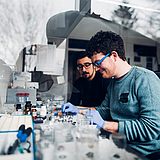
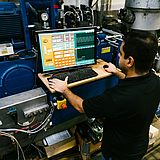

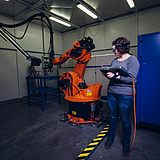


![[Translate to English:] [Translate to English:]](/fileadmin/_processed_/b/4/csm_Bachelor-NachhaltigeRohstoffgewinnung2_bcbd2c9f4d.jpg)
![[Translate to English:] [Translate to English:]](/fileadmin/_processed_/8/d/csm_Bachelor-Sportingenieurwesen-rgb_2d8a9ddec5.jpg)
